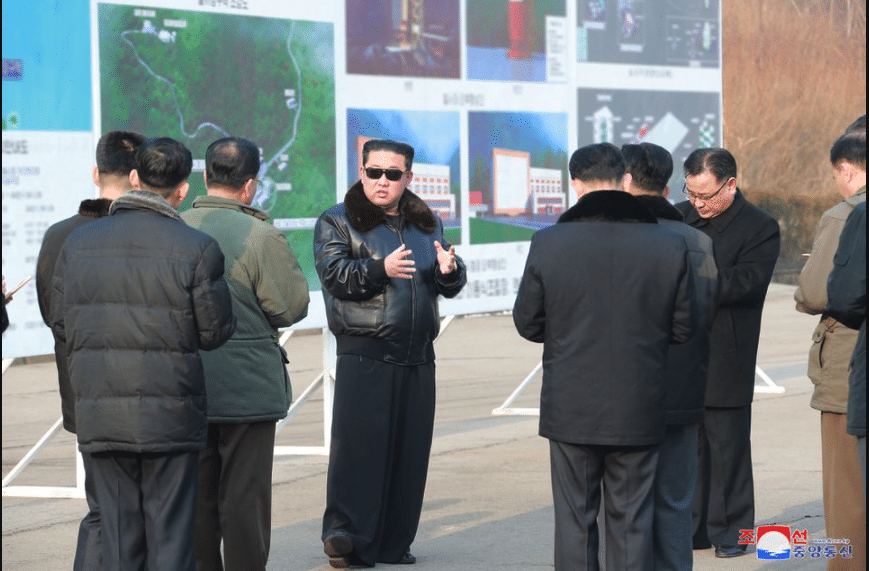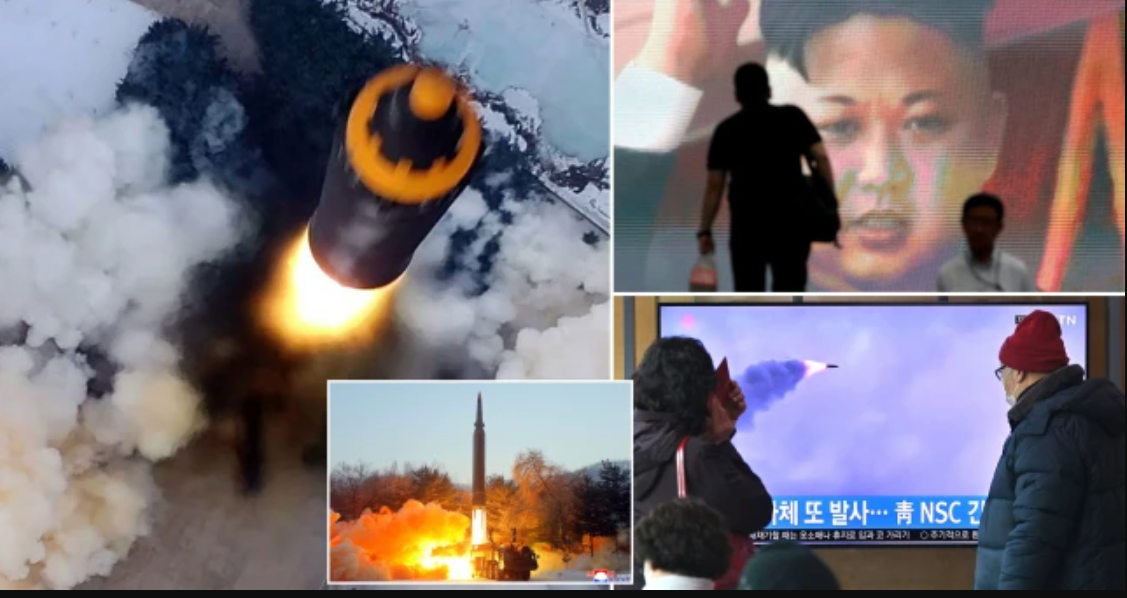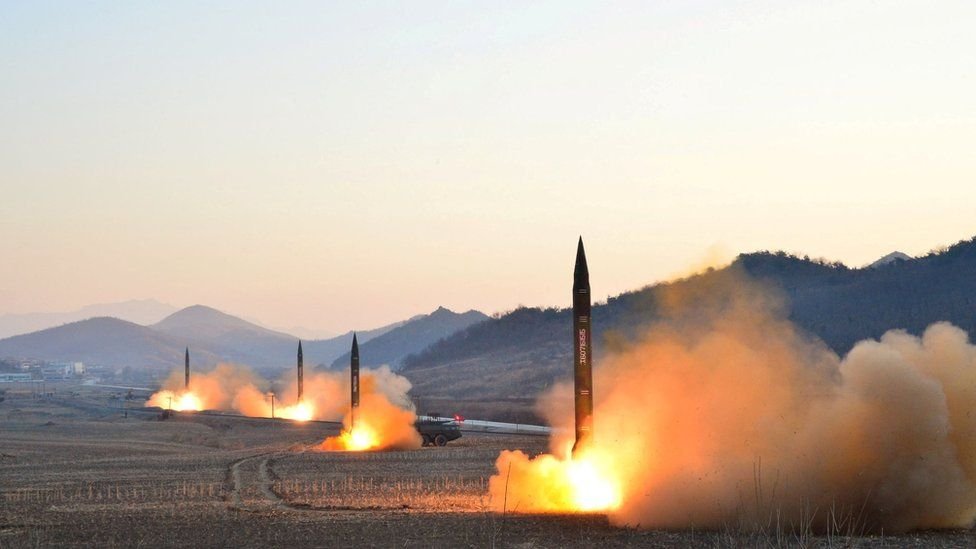NORTH Korea has warned that the United States will be “pouring gasoline on fire” by conducting an annual war game in the South next week amid heightened tensions between Pyongyang and Washington.
The US and South Korea will join forces on Monday to take part in an annual 10-day exercise involving tens of thousands of troops.
The joint military drill, known as Ulchi-Freedom Guardian, has this year antagonised the North more than usual given the heightened tensions between Pyongyang and Washington.
Combative rhetoric between the nations spiked after North Korea tested two intercontinental ballistic missiles (ICBM) last month that appeared to bring much of the US within range, sparking an intense warning by President Donald Trump that Washington could rain “fire and fury” on the North.
Australian Foreign Minister Julie Bishop described the US president’s threat against the rogue nation as “speaking Kim Jong-un’s language”.
North Korea then threatened to fire a salvo of missiles towards the US territory of Guam — a plan that leader Kim Jong-un last week delayed, but warned could go ahead depending on Washington’s next move.
Amid the fiery volley of threats, North Korea declared the “Ulchi Freedom Guardian” (UFG) could lead to “nuclear war”. Past drills are understood to have included simulated “decapitation strikes”, which see soldiers carry out trial operations to kill Kim Jong-un and his top generals.
“The joint exercise is the most explicit expression of hostility against us, and no one can guarantee that the exercise won’t evolve into actual fighting,” an editorial carried by the North’s official Rodong Sinmun newspaper read.
“The Ulchi Freedom Guardian joint military exercises will be like pouring gasoline on fire and worsen the state of the peninsula.”
Warning of an “uncontrollable phase of a nuclear war” on the peninsula, it added: “If the US is lost in a fantasy that war on the peninsula is at somebody else’s doorstep far away from them across the Pacific, it is far more mistaken than ever.”
North Korea responded to last year’s Ulchi-Freedom Guardian by testing a nuclear weapon.
Seoul and Washington have said the largely computer-simulated UFG exercise, which dates back to 1976, will go ahead as planned, but did not comment on whether the drills would be scaled back in an effort to ease tensions.
Around 17,500 US troops will participate in this year’s drills — a cutback from last year — according to numbers provided by Seoul’s defence ministry.
But South Korea’s Yonhap news agency reported the allies were mulling scrapping an initial plan to bring in two aircraft carriers to the peninsula to take part in the drill.
South Korea’s top military officer said Sunday that the current security situation on the peninsula was “more serious than at any other time” amid the North’s growing nuclear and missile threats, and warned Pyongyang of merciless retaliation against any attack.
“If the enemy provokes, (our military) will retaliate resolutely and strongly to make it regret bitterly,” said General Jeong Kyeong-Doo, chairman of the Joint Chiefs of Staff, in his inauguration speech.
China, North Korea’s most important ally and trading partner, has reiterated calls for calm during the current crisis. It has expressed frustration with both Pyongyang’s repeated nuclear and missile tests and with behaviour from South Korea and the US that it sees as escalating tensions.
The widely read state-run Global Times, published by the ruling Communist Party’s official People’s Daily, wrote in an editorial that Beijing is not able to persuade either Washington or Pyongyang to back down.
“It needs to make clear its stance to all sides and make them understand that when their actions jeopardise China’s interests, China will respond with a firm hand,” the paper read.
“China should also make clear that if North Korea launches missiles that threaten US soil first and the US retaliates, China will stay neutral,” it added.
“If the US and South Korea carry out strikes and try to overthrow the North Korean regime and change the political pattern of the Korean Peninsula, China will prevent them from doing so.”
China has long worried that any conflict on the Korean peninsula, or a repeat of the 1950-53 Korean War, could unleash a wave of destabilising refugees into its northeast, and could end up with a reunified county allied with the US.
North Korea is a useful buffer state for China between it and US forces based in South Korea, and also across the sea in Japan.








